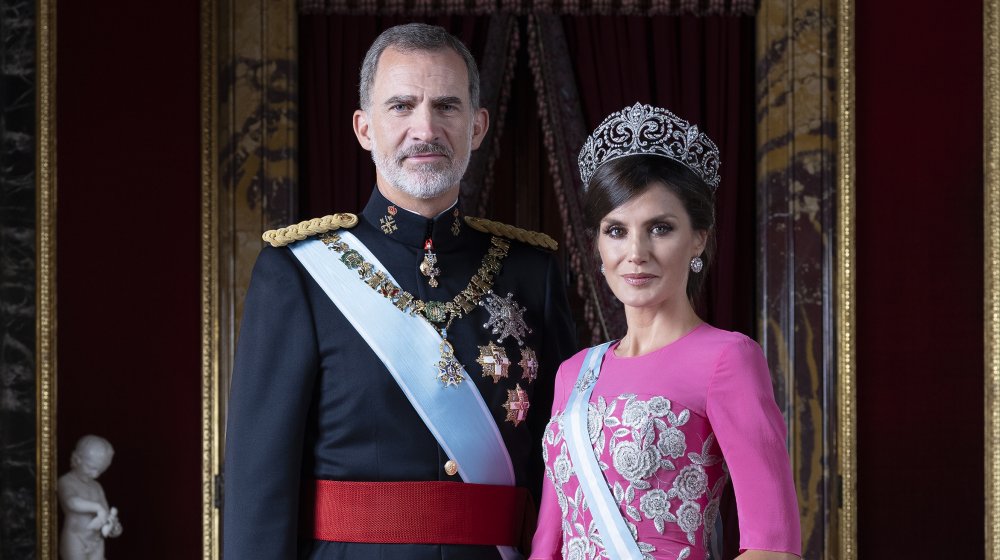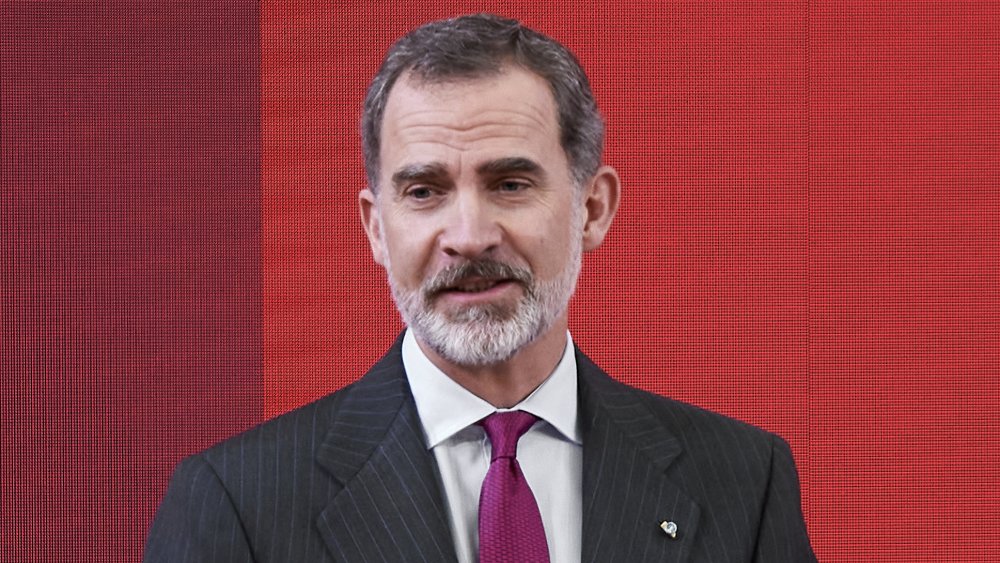How Much Power Does The King Of Spain Really Have?
The king of Spain reigns mainly over plains. That's because most of Spain is made of flat terrain, explains ThoughtCo. Of course, the king's domain used to be insane, encompassing portions of North, Central, and South America, Africa, Oceania, and of course Europe, according to the World Atlas. Back in the late 15th century, King Ferdinand wielded so much power that explorer, fight-dancer, and mermaid face-shamer Christopher Columbus could sail the ocean blue and brutally subjugate people halfway across the world on behalf of the monarchy.
Columbus kicked off a period of global colonialism that enabled Spain to have either power or influence over close to half the entire world between the 16th and 18th centuries, per the National Park Service. During this time, the king reached the zenith of his sovereignty, particularly King Philip II, who took the throne in 1556. His reign marked the start of absolutism, which the Max Planck Encyclopedia of Comparative Constitutional Law describes as an era characterized by all-powerful, completely unaccountable monarchs. The Spanish Crown's power has dwindled significantly since then. How much control does the reigning king of Spain retain over the plains?
The King of Spain is constitutionally constrained
In 2018, the newspaper El País reported that Spain's current king, Felipe VI, is "the first monarch to have sworn on the 1978 Spanish Constitution." His father, Juan Carlos, had been appointed as king by strongman Francisco Franco, who had established a vicious dictatorship in the 1930s after winning the Spanish Civil War. After Carlos ascended to power in 1975, writes Britannica, he quickly shifted from Francoism to a more democratic system, approving the 1978 constitution, which affords greater regional autonomy to provinces.
The constitution also defines the separation of powers between Spain's executive, legislative, and judicial branches. As head of state, the king represents Spain in international matters but has a largely apolitical and in some respects symbolic role. He is commander in chief and can declare war but doesn't actually control the military. He appoints the prime minister with the consent of parliament. He can ratify treaties approved by the government. Kings are even accountable to public opinion. King Juan Carlos actually abdicated the throne after scandals tanked his reputation. As El País put it, "The king does not run for office, but that does not mean that he does not submit to citizen scrutiny."

